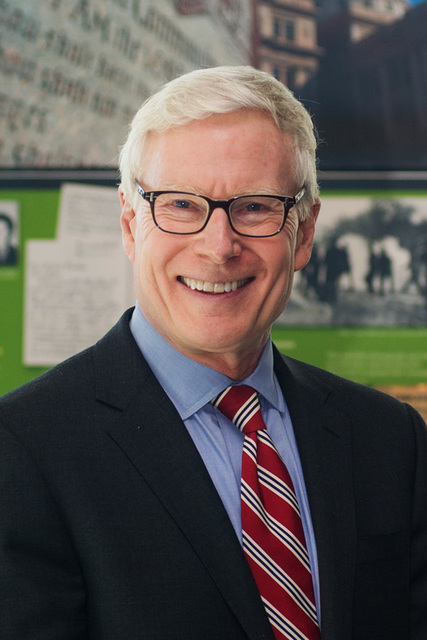Haynes: ‘A shameful day’
On Jan. 27, International Holocaust Remembrance Day, President Donald Trump issued an executive order temporarily halting immigration from seven Muslim-majority countries, suspending the refugee program and permanently imposing a religious test for refugees going forward.
Jen Smyers of Church World Service spoke for many people of faith working on behalf of refugees when she called Jan. 27 “a shameful day” in the history of the United States.
Numerous national security experts and diplomats — including more than 1,000 State Department officials — have also spoken out, warning that the order is wrongheaded and dangerous. The optics of an American policy that appears to target Muslims seriously tarnishes the reputation of the U.S. in Muslim-majority countries and throughout the world.
The initial chaos and confusion surrounding the rollout is a harbinger of the damage to come from alienating Muslims worldwide, empowering radicals, and abandoning refugees to suffer in camps. Far from making us safer, the executive order is widely viewed as a direct threat to our national security and an assault on American values.
Of all the controversial provisions of the order, none is more problematic and damaging than the religious test that gives priority to refugees fleeing religious persecution if, and only if, they are a religious minority in their country of origin. The intent is clear: Open the door to Christians from Muslim-majority countries while doing everything possible to keep Muslims out.
Although the order does not explicitly mention Muslims — and administration officials insist it is not a “Muslim ban” — we know the motive behind the order from Trump’s own campaign promise to mandate the “complete shutdown of Muslims entering the United States.”
Facing fierce backlash last summer, Trump retooled the “Muslim ban” to make it more palatable, but he did not retreat from his intention to keep Muslims out. Asked by NBC News in July if he was backing away from his Muslim ban, Trump answered:
“I don’t actually think it’s a rollback. In fact, you could say it’s an expansion…People were so upset when I used the word Muslim. Oh, you can’t use the word Muslim. Remember this. And I’m OK with that, because I’m talking territory instead of Muslim.”
Now, six months later, Trump’s Muslim ban under another guise is the official policy of the United States government.
From a human rights perspective, the most disturbing parts of the executive order bar refugees for four months, cut the number allowed in by 60,000, impose a religious test, and freeze indefinitely the refugee resettlement of Syrians. Taken together, these policies add up to an inhumane, immoral and woefully inadequate response to the greatest humanitarian crisis since World War II.
Contradictions and ironies abound. Trump recently told Christian Broadcast News that he wanted to help Syrian Christians, whom he claimed (without citing evidence) were deliberately kept out while Syrian Muslim refugees were let in under the last administration. But his executive order bars all refugees from Syria indefinitely — meaning that Christians facing genocide in Syria will have no haven in America.
Last year the U.S. accepted a small number of Syrians (10,000 as of August 2016) out of the nearly 5 million Syrian refugees. After Trump’s order, the number will be zero. Once the four-month ban on refugees from other countries is lifted, the number of projected refugees will be cut almost in half and those seeking entry will face a religious test.
Beyond humanitarian concerns, I am convinced that Trump’s order is also unconstitutional. The Establishment clause of the First Amendment prohibits government from targeting Muslims for exclusion and favoring Christians for admission; in short, prioritizing some religious groups over others. Lawsuits have already been filed challenging Trump on First Amendment and other constitutional grounds.
If strengthening national security is the goal, keeping out refugees — Muslim or otherwise — is not the solution. Refugees are currently vetted for over two years before being allowed entry, and no person accepted into the U.S. as a refugee has been implicated in a fatal terrorist attack since systematic procedures were established for accepting refugees in 1980, according to an analysis of terrorism immigration risks by the Cato Institute.
Orwellian doublespeak cannot obscure the hostility toward Muslims and Islam that animates President Trump’s executive order on immigration. A Muslim ban is a Muslim ban by any other name.
On the day we remember the Nazi genocide of the Jews, the United States closed the door to those fleeing genocide today.
A shameful day indeed.
Charles C. Haynes is vice president of the Newseum Institute and founding director of the Religious Freedom Center. Contact him via email at chaynes@newseum.org. Follow him on Twitter at @hayneschaynes.











